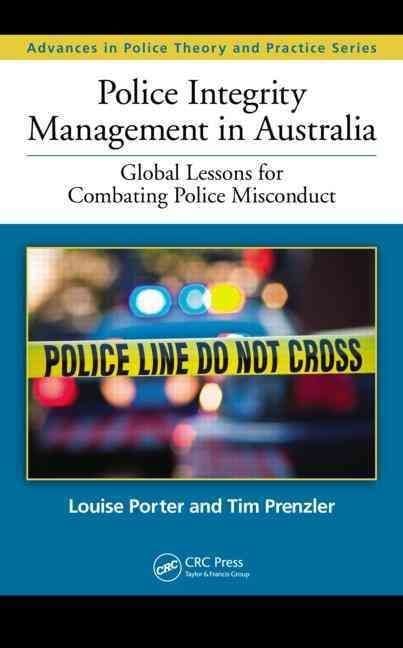In the past two decades, Australia has been the site of major police misconduct scandals and inquiries, leading to reform initiatives at the cutting edge of police integrity management practices. Presenting interviews with key informants and an analysis of key documents, Police Integrity Management in Australia: Global Lessons for Combating Police Misconduct offers a comprehensive study, conducted from 2008 to 2010, of strategies and systems in Australia. Providing a rare overview and critique of a full suite of policies, institutions, and programs adopted to combat misconduct in policing, this volume: Outlines the global problem of police misconduct and its effectsSummarizes current knowledge about best practices in the field, the reality of corruption in Australia, and the reform agenda that has driven major change and experimentationPresents current integrity strategies in place in Australia, covering the rationales, evidence of effectiveness, and difficultiesExplores undercover stings, drug and alcohol testing, mediation of complaints, ethics training, and regulating the police use of force Organized logically for ease of navigation, each chapter contains an “Emerging Issues” section, highlighting some of the more promising and/or innovative integrity strategies as well as looming concerns and ethical issues. The book concludes with an overall evaluation of the data presented in the body of the book, assessing the strengths and weaknesses of the Australian system and the implications for adoption of these strategies in other police departments around the world.












